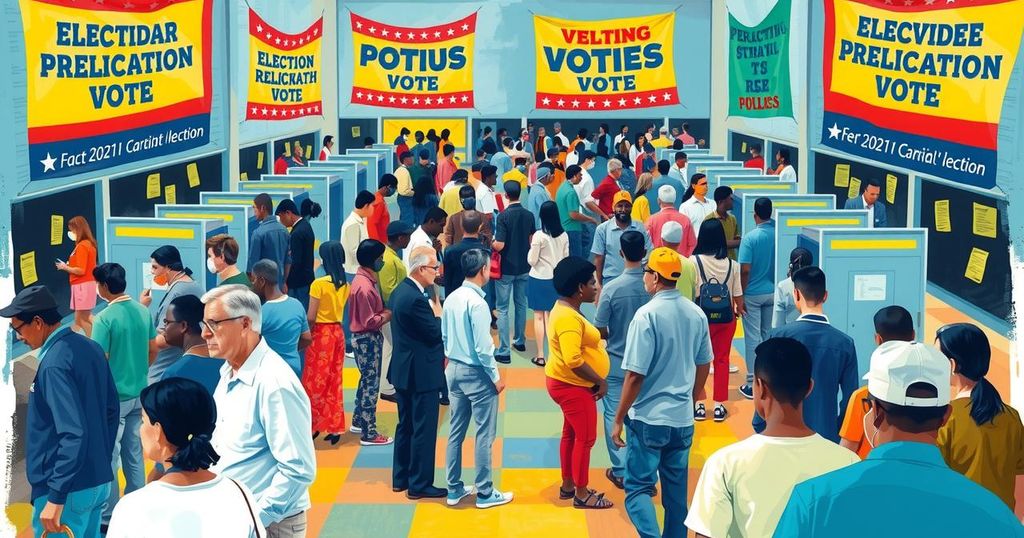Gabonese Voters Cast Ballots in Landmark Presidential Election After Coup
Gabon held a presidential election on Saturday, the first since the 2023 military coup. General Brice Clotaire Oligui Nguema, the interim president and coup leader, is expected to win decisively against Alain Claude Bilie-By-Nze, Bongo’s former prime minister. Voter turnout was significant, with concerns over election transparency being a focal point.
In Gabon, voters participated in a presidential election on Saturday, marking the first electoral event following the 2023 military coup that dismantled a 50-year political dynasty. The interim president, General Brice Clotaire Oligui Nguema, who led the coup against President Ali Bongo Ondimba, is anticipated to secure a significant victory. Approximately 920,000 voters, including over 28,000 from abroad, registered across more than 3,000 polling stations.
General Nguema seeks to solidify his authority with a proposed seven-year term as he pledged to “return power to civilians” via credible elections. He adopted the campaign slogan “We Build Together” and is advocating for national unity and hope among Gabonese citizens. In light of the coup, Ali Bongo was briefly placed under house arrest, with corruption allegations surfacing against his family and former associates, although Bongo himself was not charged.
Eight candidates are contesting in this election, with Nguema’s primary opponent being Alain Claude Bilie-By-Nze, Bongo’s former prime minister. Bilie-By-Nze has committed to revamping public finances and reducing dependence on France. Concerns over the transparency of the election process were expressed by Bilie-By-Nze, who stated, “Everything has been done to lock down the vote.”
Voting proceeded peacefully in the capital, Libreville, where citizens from diverse backgrounds lined up at polling stations. Some voters, like Jonas Obiang, expressed their discontent with the current regime, stating their intention to vote for Bilie-By-Nze due to perceptions of ongoing corruption from the military leadership. Others, however, like Jean Bie, expressed a belief in the military’s capability to foster positive changes in governance and voted for Nguema, hopeful for future accomplishments.
The Gabonese presidential election signifies a critical moment following the military coup that ended decades of political rule. General Nguema’s anticipated victory underscores the military’s ongoing influence, while Bilie-By-Nze’s candidacy highlights calls for financial reform and a break from colonial ties. The divergent views among voters reflect a nation grappling with its political legacy and aspirations for the future.
Original Source: www.news4jax.com




Post Comment